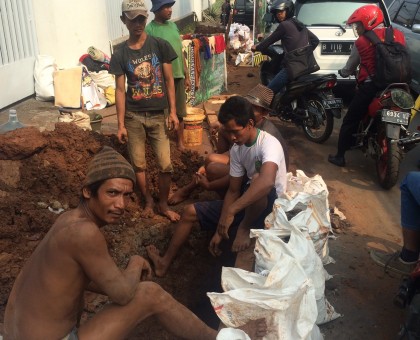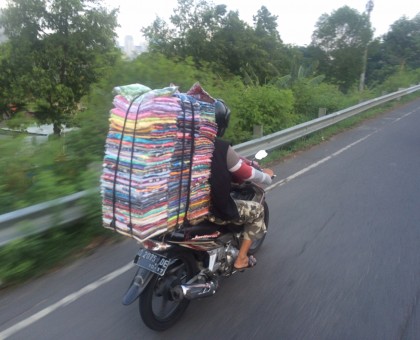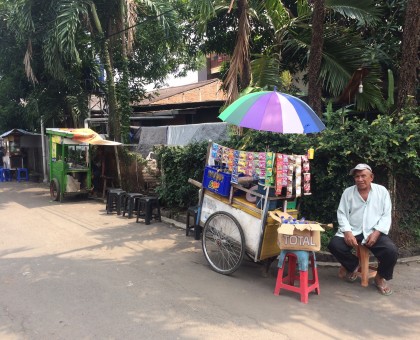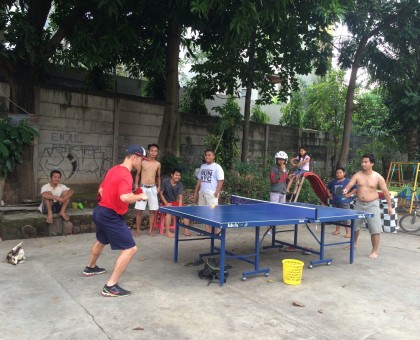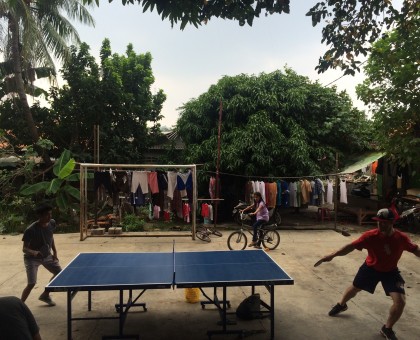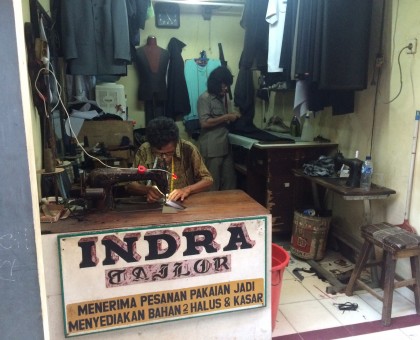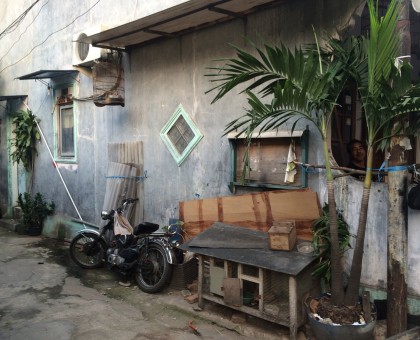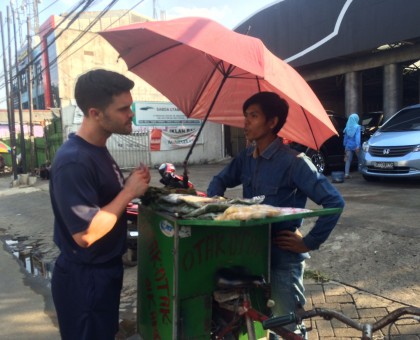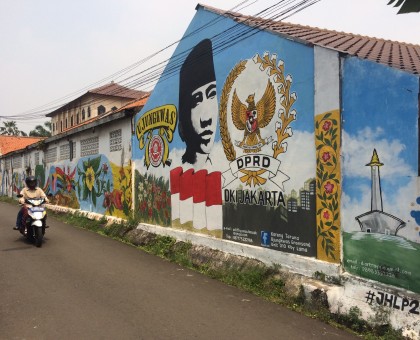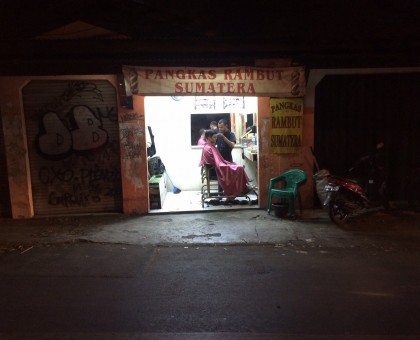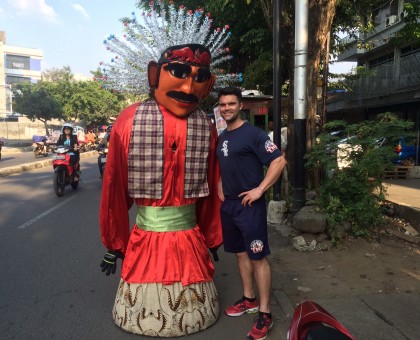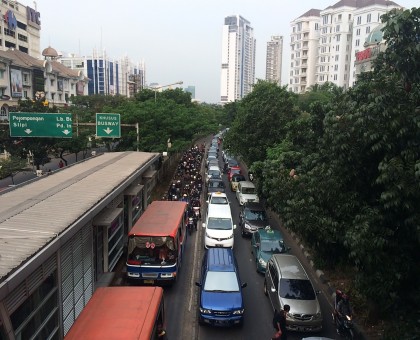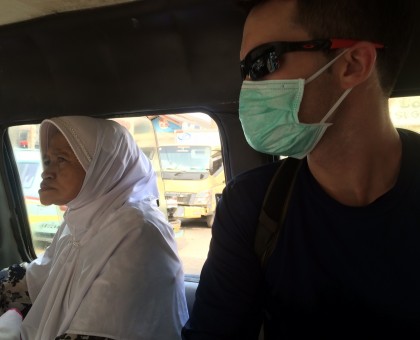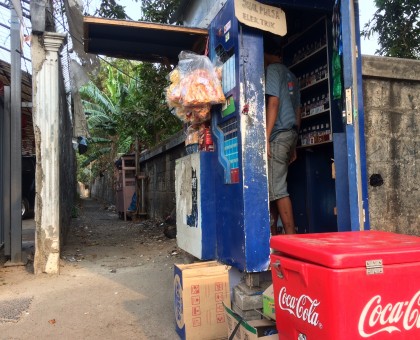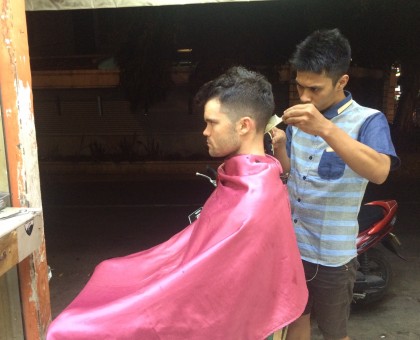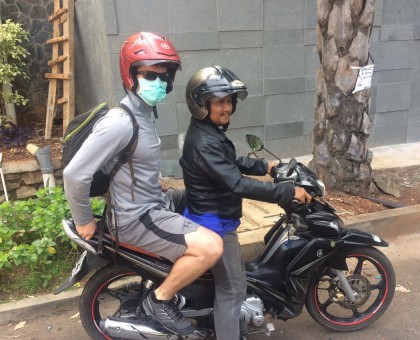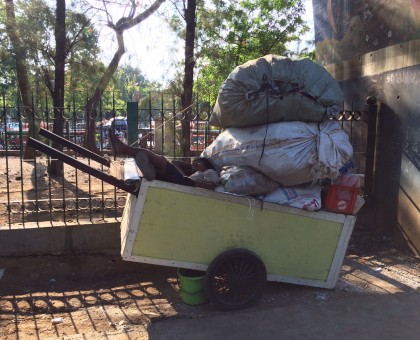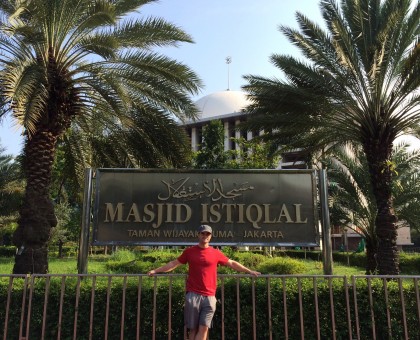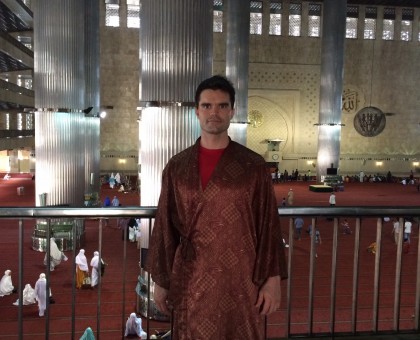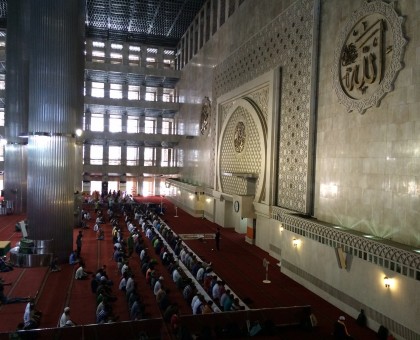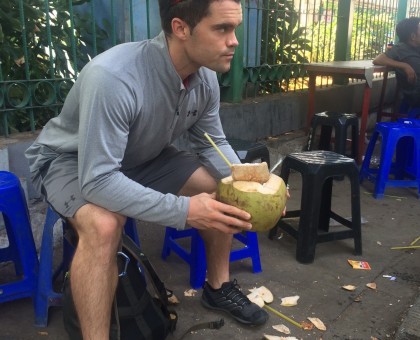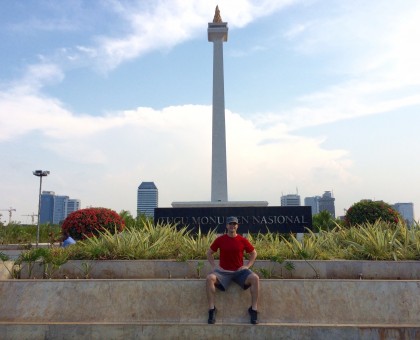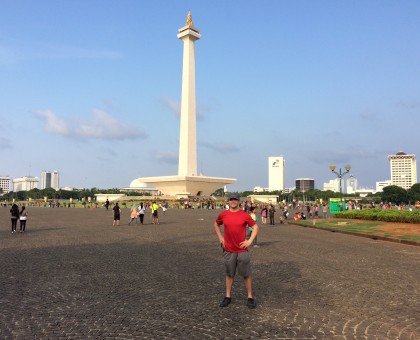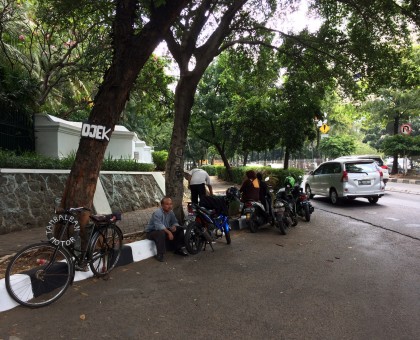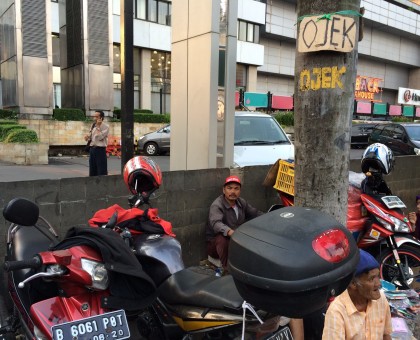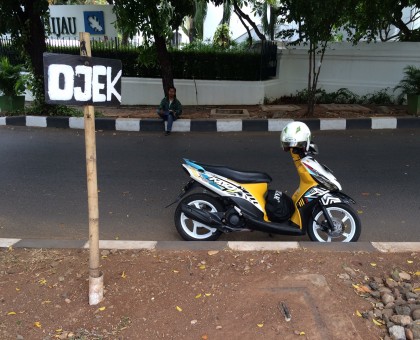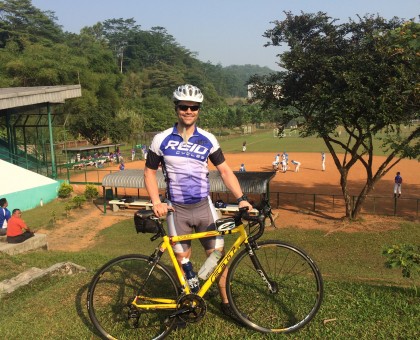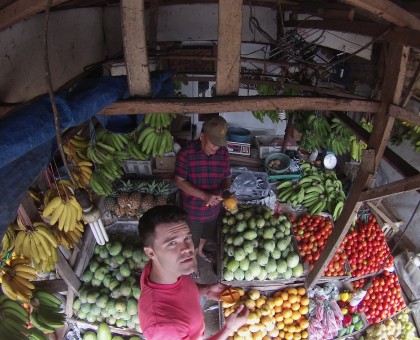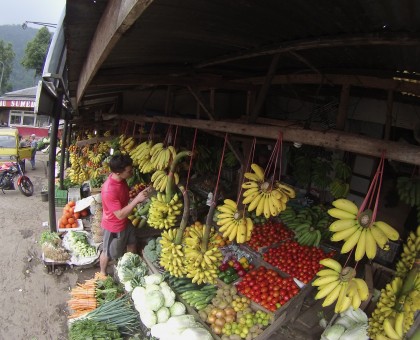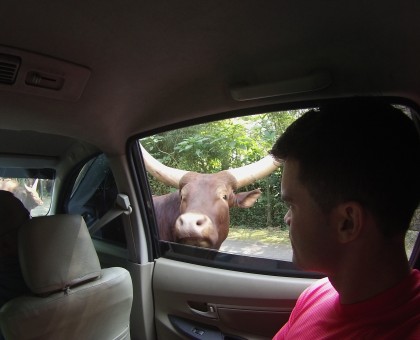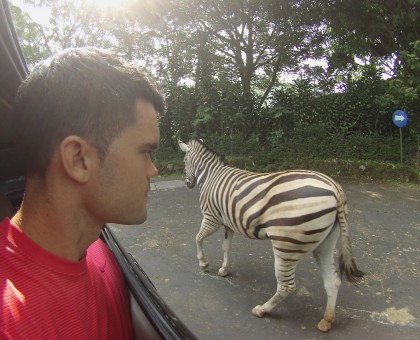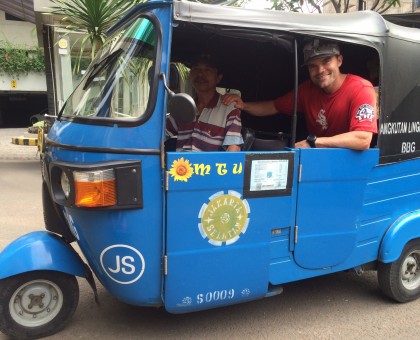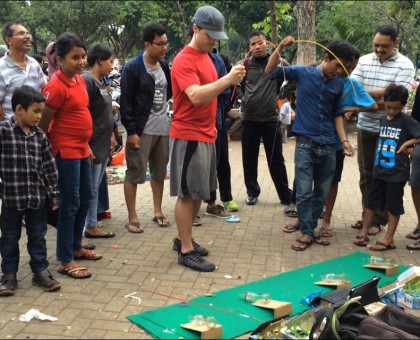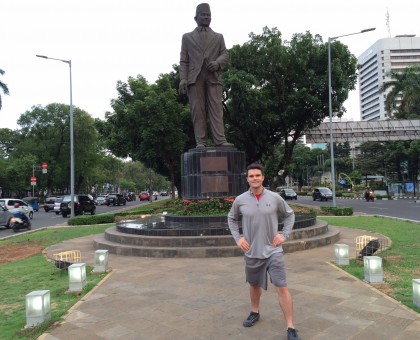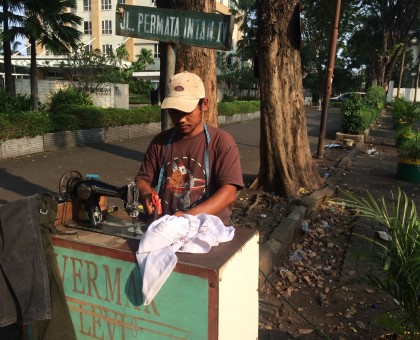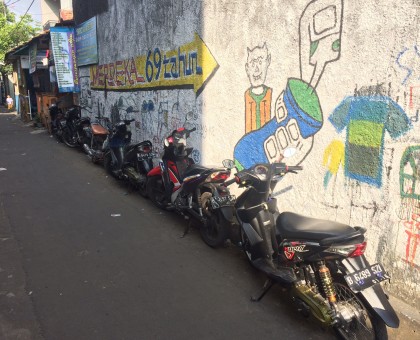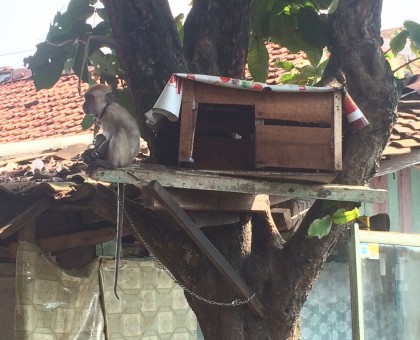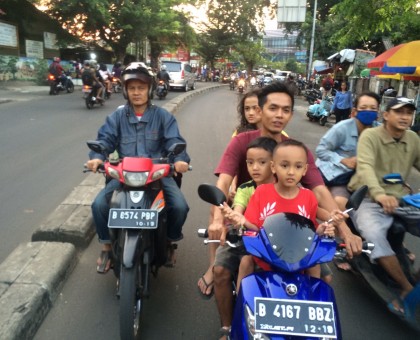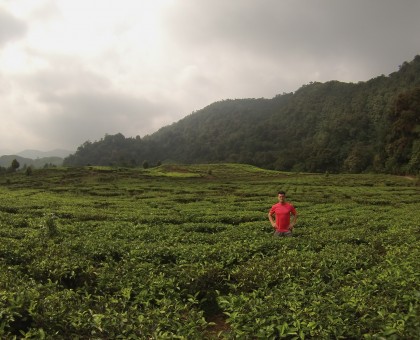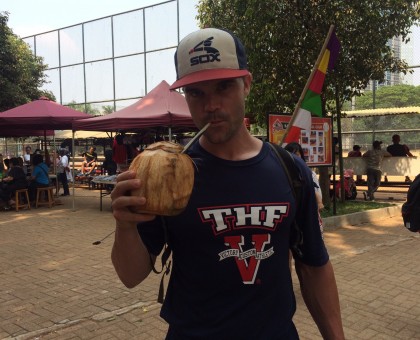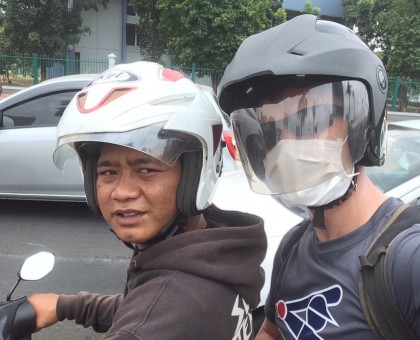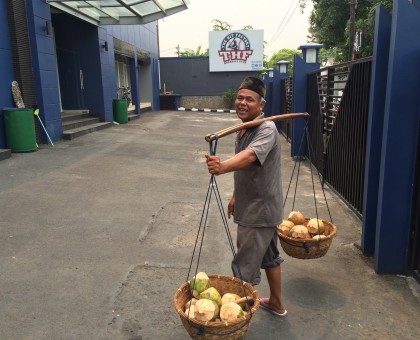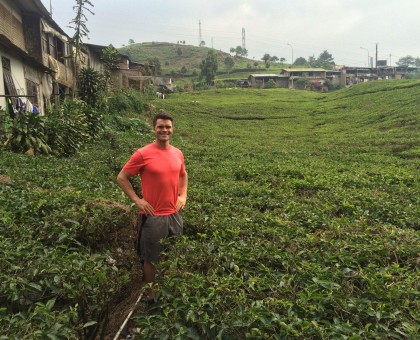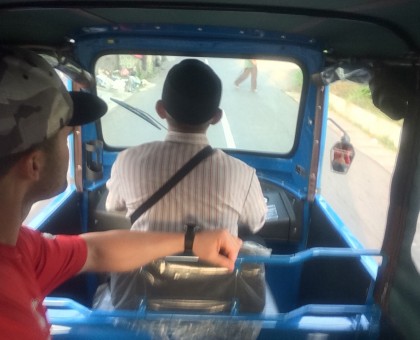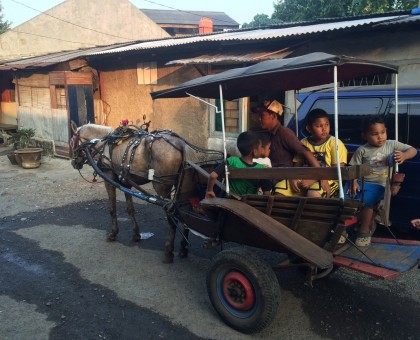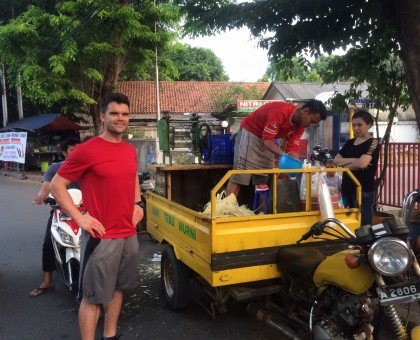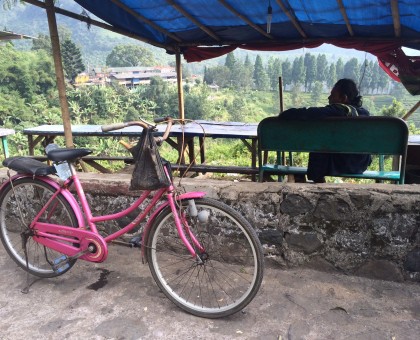.png)
In May 2015 I moved from one of the cleanest, most efficient cities on this side of the planet (Singapore), to one of the most overcrowded, inefficient cities (Jakarta) in the world. Sometimes duty calls.
I made the most of my transition from Singapore to Indonesia, visiting local attractions such as the Taman Safari Indonesia (where I hung out with lions, tigers and orangutans), checking out the Indonesian National Monument and getting out of the hustle and bustle of Indonesia's capital city and taking trips to Bogor, Sentul, Puncak and Tangerang.
Ask anyone who has been to Jakarta anything about the place, and the first words out of their mouth are likely to be, 'How 'bout that traffic?!', knowing how awful it truly is.
Despite the crawling pace it boasts and (dis)organzied chaos locals refer to as 'traffic', living in Jakarta has been one of the more unique experiences of my young adult life. Navigating to and from work (by bicycle) on a daily basis is not for the meek and unassertive, as the rules of the road, well, they don't really exist. He who decides and does, gets to go. Only the bravest dare to operate their own vehicle, with most expatriates electing to hire a personal driver.
I've discovered that the most efficient way to get around Jakarta is by hitchhiking. Relax, it's not what it seems. On nearly every corner throughout Jakarta resides an entrepreneur (often several) waiting to take advantage of the next business opportunity. Their customer: someone who longs for efficiency.
These 'businessmen' are called 'ojek' drivers, and their advertising is typically a cardboard or hand-painted sign attached to a pole, tree or even their motorbike, which is the mode of transportation. Tell them where you're going, put on a helmet and hold on tightly. The transaction will come after the service, and is always negotiable (like most services in Indonesia). Why not just hop in a taxi, you ask? Taxis are vehicles with four wheels, and this type of transportation is the least efficient in Indonesia's capital city. The ojek drivers' motorbikes can weave through traffic, dart through small alleyways ('jalan tikus' - rat streets) or even navigate around traffic by hopping onto sidewalks. All of the aforementioned are commonplace when traveling by ojek. In fact, if your ojek driver doesn't perform these shortcuts, he's likely new at the gig.
- Calls to prayer ('adzan') - occurring at least 5 times daily - around 4:30am, 12pm, 3:30pm, 5:50pm and 7pm - you can be pretty much anywhere and hear the prayers being projected through the loud speakers attached to the mosques (which are practically on every corner)
- Car and scooter horns - with a slight traffic problem, horns from vehicles on the road are essentially the city's heartbeat
- Puttering scooter motors - we're not talking about the sleekest, flashiest motorcycles jetting around the city, so some of the homemade motor vehicles aren't...well...quiet
- Fireworks - during Ramadan it is perfectly normal for young children (and people of all ages, for that matter) to set off fireworks in the middle of the street; in the months of June and July (Ramadan 2015) I became proficient at dodging fireworks as I rode my bicycle to and from work. Ramadan is a holy month of fasting, introspection and prayer. Fasting is one of the five fundamental principles of Islam. Each day during Ramadan, followers of Islam (known as Muslims) do not eat or drink from sunrise to sunset.
Something else about Jakarta: (almost) everyone smokes. It is very much socially accepted. With cigarettes being produced locally, they are ridiculously inexpensive, and in fact, can be purchased individually. Unfortunately, many young Indonesians take up the habit early. The city seems to have a permanent smell of cigarette smoke. That's character, right?
One of Jakarta's most unique ways to (barely) make a buck is to stand in the middle of an intersection and 'direct' traffic. Locals call these daredevils 'traffic volunteers'. Most of the time, scooters and cars just dart around the guy standing in the middle of the road, but if you want to cross the street or get across a busy intersection, just hand the fearless volunteer a few coins or notes and he'll get the cars to stop. It's like magic, and quite the treat to witness! Sometimes traffic volunteers use a whistle, but others go more rogue, and use their hands. Most third base coaches in the big leagues would be envious of the stop-go-stop-go nonverbals these guys utilize.
From dead rats (and cats) in the streets of South Jakarta to semi-trained monkeys donning doll clothes, there is certainly a side to Jakarta that would make your grandmother cringe. That being said, Indonesia generally should not be defined by its capital city. The people of Indonesia are some of the kindest, most genuine human beings on the planet; their soft, unassuming demeanor makes them very easy to get along with. From my experiences with Indonesians, most of them would be willing to give you the shirt off their back if you needed it.
Oh yeah, and haircuts are USD 1.15, bottled water is less than that and you can get a 90-minute massage for less than USD 20.
#indo


